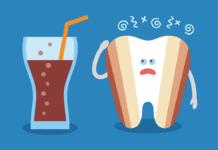Mental health has become recognized as an essential piece of one’s entire whole-body health. When we think of mental health in the dental profession, we think of dental patients. But what about the dental provider on the other side of the chair?
There are some challenging parts of our job, which can take a toll both physically and mentally. Here are some common scenarios that can affect a dental hygienist’s mental health at work:
Sometimes patients are lemons. Huh? Lemons? Yes, lemons. Lemons are sour, and sometimes patients are not very sweet. We all have had some patients who are not very nice. They may not want to be there today or are nervous, which can sometimes come off as rude.
We try not to take it personally but having a bunch of lemons in one day can lower our morale. Sometimes finding common ground in conversations or allowing some peace and quiet during the appointment can change the tone into a better one. For a “quieter” appointment, you can have music playing in the background and have minimal conversations during the visit’s active components (scaling, polishing, flossing, etc.), and reposition OHI and dental conversations to the beginning and end of the appointment instead.
Ethical dilemmas. When a patient refuses a necessary procedure, such as taking radiographs on a very overdue patient, and your office approves to continue treatment, you now enter the ethical dilemma zone.
What to do? If you continue treatment without taking radiographs, this is supervised neglect and comes with liability concerns. This can cause high stress and anxiety. Expressing how you feel to the patient and your office is important.
What I mean by expressing yourself to the patient may look like explaining that it is a liability and ethical issue for not only yourself as the current provider but also the dentist and practice. Emphasize the need to follow the standard of care and best practices (radiograph guidelines) to the patient as well. For instance, the doctor cannot diagnose caries and other treatment needs, and a hygienist cannot see bone levels without radiographs. To provide the best and most appropriate care, you must see the overall picture, and that includes up-to-date radiographs.
Having a team meeting or a one-on-one with your doctor can help create a plan and protocols on what should be done in these situations. For example, office policies could be reviewed on what should be done if a patient wants to refuse procedures and assessment modalities such as radiographs. You can also discuss when to involve other providers, such as the doctor. This planning may also include determining when a patient should be dismissed as they are refusing the standard of care. This will allow consistency, and everyone will be on the same page.
Uncomfortable conversations. Communication is a huge part of our job every day. Along the way, you may have experienced being involved in a conversation with a patient, fellow employee, or employer that may have been uncomfortable.
Uncomfortable can have a few different meanings, such as an awkward situation, inappropriate comment, or an inappropriate topic being discussed in the workplace or during a patient appointment. In any of these scenarios, reporting what happened is so important, regardless of the severity.
In terms of this article, I am focusing on experiencing inappropriate topics or comments patients have made. Some examples I personally have experienced are political topics or profanity. Negative language may arise again and again and can beat you down after a while, especially when it repeatedly happens throughout the day. The dental office is not the place for that. If a patient is using profanity, you can ask them to stop politely, and you should also bring this situation to someone like the doctor or office manager for further support. You do not deserve to be spoken to in that way at the workplace.
Feeling undervalued or defeated. This is a big one in so many ways. A dental hygienist may experience this with either the patient or employer. While in dental hygiene school, I remember one of my professors emphasized that we are more than just the “cleaning lady.” That was one of the first lessons I was taught in school.
We do a lot more than just “clean teeth.” Just recently, I got that comment, and it bothered me. The patient said, “Oh, sorry. I just ate breakfast, and being here (the dental chair) is like having your house cleaned by a housekeeper.” I may have been a little sensitive, but still, I know I am more than that. Dental hygienists prevent, treat, and maintain oral conditions.
One resolution to a situation like this is educating our patients on what we do in a polite way. You may even make it in a joke-like way. You could say, “Yes, I do clean, but I do x, y, and z, too (you can list a few other responsibilities a hygienist does that the patient may not be familiar with).” Prior to any type of conversation like this, evaluate how much support from the office and the doctor you have, as well as be very intentional with your words based on your relationship with that patient.
Or, you start to feel defeated when your patients repeatedly do not follow personalized recommendations. They may appear like they want to be in and out of your chair and see you again in six months, even when they are more periodontally involved, and they don’t seem to care or attempt to improve their oral health. When this concept repeats itself again and again, you start to feel unappreciated.
You also may feel undervalued by the administrative side of your office, by your co-workers, or even your employer. This can take a huge toll over time. Open communication is crucial to improving this situation. Nothing will change if you don’t speak up and advocate for yourself. If things don’t improve, even after an open conversation, then there needs to be a self-evaluation on what you want to do: stay in the current environment or find a better one.
The concept of leaving an office and finding a new one can cause a lot of mental turmoil and stress. Finding support from those not part of the situation and relying on them will help you overcome challenging times like this.
Work environments and workload. Packed schedules, late patients, or tough patient cases are some of the many things dental hygienists experience in the work environment. The repetitive nature of our jobs can cause you to feel like a robot sometimes, and this can create stress, anxiety, or cause you to become upset.
There are a lot of working parts, no matter what sector you are currently working in.
Unfortunately, every day is not a great one, but it is important to find at least one moment of good. One such moment could be having a good patient in your chair, going to lunch, your favorite song coming on during the day, or something you are looking forward to after work.
There are many ways to improve your own personal challenges. At times, these may be difficult to follow through each day; it may require practice. It’s OK to have a bad day. Eventually, a good day will come. Here are eight ways that may help:
1) Remove exaggerated expectations. This doesn’t mean having zero goals by any means. Let things unfold instead of imagining expectations on how an appointment or the workday may go. Take things day by day, moment by moment, patient by patient.
2) Picture positivity. This is harder than it seems. What does the word “positive” mean to you? What does that look like? To start, you may have a positive calendar in your operatory, a positive quote posted, or a nice photo on your computer desktop. You could also add some photos inside your cabinet or drawer (if allowed) of your family, friends, or vacation you went on. Looking at outdoor scenery, plants, and landscapes whether through a window or a photo, can improve moods. According to Texas A&M’s AgriLife Extension, having “natural aesthetics” at home or the workplace calms and relaxes people, reduces stress or anxiety, and improves concentration. 2
3) Don’t go into a situation with a million scenarios. Try to block outside influence. Has a fellow employee ever warned you about a tough or mean patient before you call them back to your operatory? This “warning” influences you and may even cause a misconception about how the appointment will go. Personally, this scenario would negatively pump me up mentally; however, after the appointment, I thought that patient was fine.
4) Perfection does not exist. We know that, but it still may be hard to swallow. During dental hygiene school, you may have been told that hygienists usually have type A personalities, which is great, but this also includes the search for perfection, which will never come. There is no such thing as a perfect patient, perfect appointment, perfect office, or the perfect hygienist. You may have had or currently be in a great office or situation, but “perfect” is a strong word. The point I’m trying to make is to try to fight the “perfection only” attitude and just be you and try your best.
5) Finding one good moment each day can go a long way. Sometimes that is really hard to do. Sometimes, the workday drags you down into a negative pit, and one small inconvenience makes you want to explode. A good moment can be the smallest thing, such as a patient saying “thank you” or having donuts in the breakroom.
6) Find your own peace with your work and career. Focus on what you are able to control and change, not on things you can’t. That’s a big one to work through because the negative or what is wrong can be very easily noticed. Change is a progressive process; it does not happen overnight. Patience and giving yourself a break are needed and try not to be too hard on yourself. It can be really tough and may require practice to change perspective and mindset and not focus on what is going wrong.
7) You aren’t alone. Someone else has experienced what you are going through or have gone through. Find support somewhere. This may not happen at work, but you may find a family member, a friend, a therapist/counselor, or even someone in a dental social media group to be there for you.
8) Human beings aren’t meant to be fully alone. Personal care and personal time are very valuable and are essential, but being alone mentally in a tough time is extremely difficult.
The Journal of Dental Hygiene suggests that “stress management education and training should be incorporated into dental hygiene educational programs.”1 Having support along the way is an important piece to improving one’s mental health. In addition, try to find a balance between personal and work life. Take breaks because you deserve it. It is time to focus on whole body health, including mental health, not just physical health.
Before you leave, check out the Today’s RDH self-study CE courses. All courses are peer-reviewed and non-sponsored to focus solely on high-quality education. Click here now.
Listen to the Today’s RDH Dental Hygiene Podcast Below:
References
- Barnard, S.A., Alexander, B.A., Lockett, A.K., et al. Mental Health and Self-Care Practices Among Dental Hygienists. American Dental Hygienists’ Association. 2020, 94(4): 22-28. https://jdh.adha.org/content/94/4/22
- Health and Well-Being Benefits of Plants. (n.d.). Texas A&M Agrilife Extension. https://ellisonchair.tamu.edu/health-and-well-being-benefits-of-plants/












